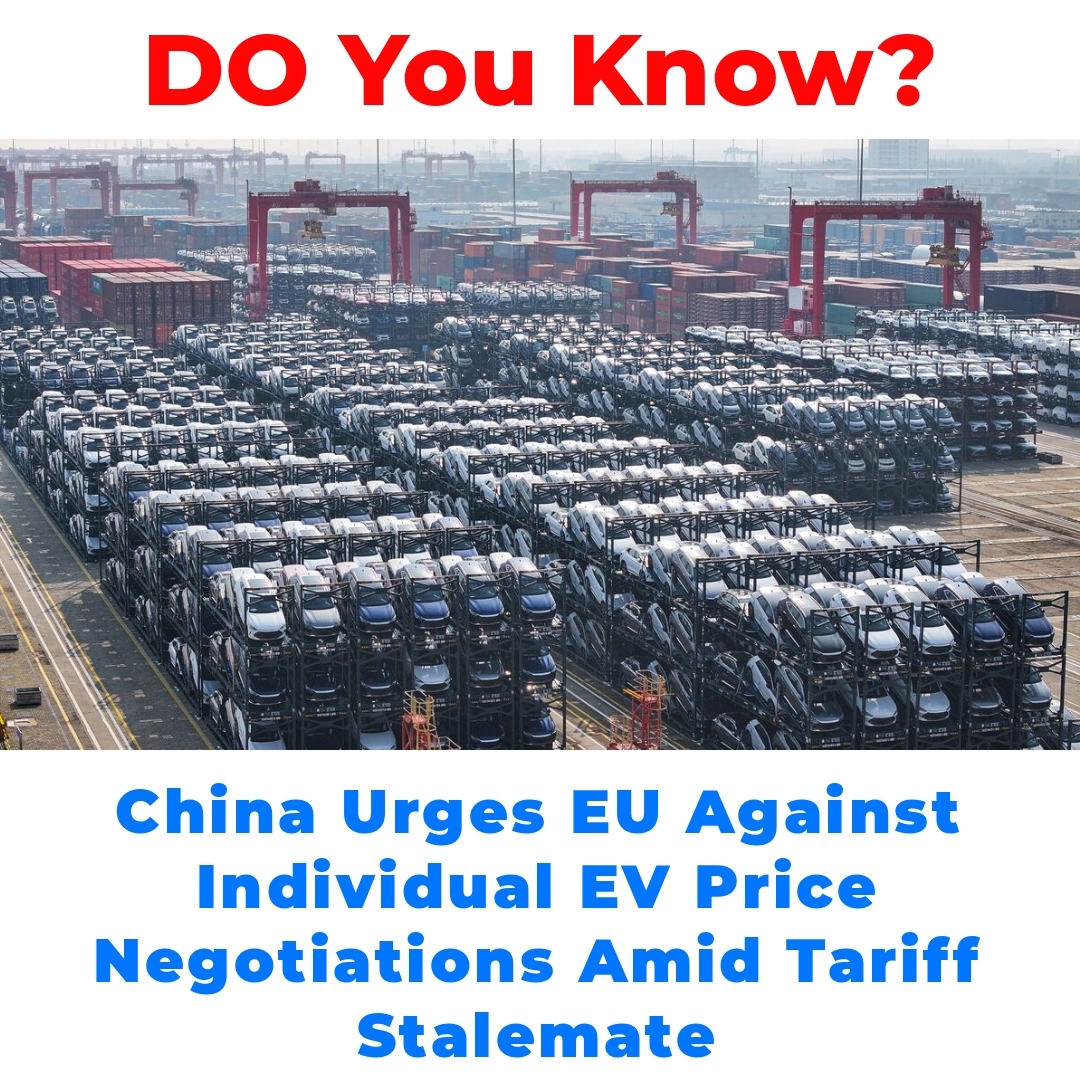Amid ongoing discussions surrounding Electric Vehicle Tariffs, China has urged the EU to refrain from individual price negotiations. This request not only highlights the complexities of the EU Electric Vehicle Negotiations but also carries significant implications for global trade relations, particularly between China and European nations.


Understanding Electric Vehicle Tariffs is crucial in today’s rapidly evolving automotive landscape. Electric Vehicle Tariffs are essentially taxes imposed on imported electric vehicles, which can significantly impact international trade dynamics. The EU has proposed these tariffs as a strategy to boost its local electric vehicle production while ensuring fair competition within the market. However, this move has sparked considerable controversy and discussions, particularly with major electric vehicle manufacturers based in China.
The EU Electric Vehicle Negotiations have seen considerable action in recent months, with eight rounds of discussions taking place in Brussels alone. However, despite these intensive talks, a consensus has yet to be reached. Key issues—including concerns over market fairness and regulatory alignment—have stalled the negotiations, leading to a complex situation for all parties involved.
China’s position in these negotiations has been clear. The country has urged the EU to avoid individual electric vehicle price negotiations. But why? The reasoning behind this request is multi-faceted. Individual negotiations could lead to increased complexities and turbulence in an already delicate trading relationship. It’s likely that China is concerned that these individual discussions can create an uneven playing field, disadvantaging its manufacturers in favor of local EU interests.
The potential impact of Electric Vehicle Tariffs on Chinese manufacturers cannot be overstated. If implemented, these tariffs could significantly increase the cost of Chinese-made electric vehicles entering the EU market, making them less competitive. This might not only affect sales numbers but could also lead to a shift in market dynamics within the EU-China Electric Vehicle Market, prompting Chinese manufacturers to rethink their strategies and partnerships.
However, the negotiations are not without their challenges. The challenges in EU-China Electric Vehicle Price Negotiations stem from various economic and political factors, including differing regulatory frameworks and market expectations. Additionally, tariff agreement issues can create uncertainty for both EU and Chinese stakeholders, making it difficult to plan future investments or production schedules.
Looking ahead, the future prospects for China EU Trade Relations hinge heavily on these negotiations. Depending on how discussions progress, both regions could find a path to collaboration where common standards and tariffs are established. This would not only benefit manufacturers on both sides but also consumers looking for more accessible electric vehicle options.
To wrap things up, understanding Electric Vehicle Tariffs offers valuable insight into international relations and trade. The need for ongoing dialogue and collaboration between China and the EU is more critical now than ever, as resolving tariff disputes plays a vital role in fostering a healthy and competitive electric vehicle market.
Stay informed about future developments in EU Electric Vehicle Negotiations and keep an eye on how these discussions evolve, as they can have lasting impacts on the international electric vehicle market.
FAQ
What are Electric Vehicle Tariffs?
Electric Vehicle Tariffs are taxes imposed on imported electric vehicles. They aim to boost local production and ensure fair competition in the market, particularly in the EU.
Why has the EU proposed these tariffs?
The EU has proposed these tariffs to strengthen its electric vehicle production industry and create a level playing field for local manufacturers in the competitive market.
What are the recent developments in EU Electric Vehicle Negotiations?
There have been eight rounds of negotiations in Brussels recently. However, no consensus has been reached yet due to key issues like market fairness and regulatory alignment.
What is China’s position on the negotiations?
China opposes individual price negotiations for electric vehicles. They argue this could complicate trade relationships and create an uneven market, favoring EU manufacturers.
How will these tariffs impact Chinese manufacturers?
- Increased costs for Chinese-made electric vehicles in the EU market.
- Potential decrease in sales and market competitiveness.
- Need to rethink strategies and partnerships within the EU market.
What challenges are there in the EU-China negotiations?
Challenges include:
- Differing regulatory frameworks.
- Varying market expectations.
- Uncertainty affecting future investments and production planning.
What could be the future of China-EU trade relations?
The future hinges on the outcomes of the negotiations. Successful discussions may establish common standards and tariffs, benefiting manufacturers and consumers alike.
Why is understanding Electric Vehicle Tariffs important?
Understanding these tariffs gives insight into international relations and trade dynamics, highlighting the need for continued dialogue between China and the EU.
How can I stay updated on these developments?
Keep an eye on news related to EU Electric Vehicle Negotiations, as ongoing discussions are essential for shaping the international electric vehicle market.






